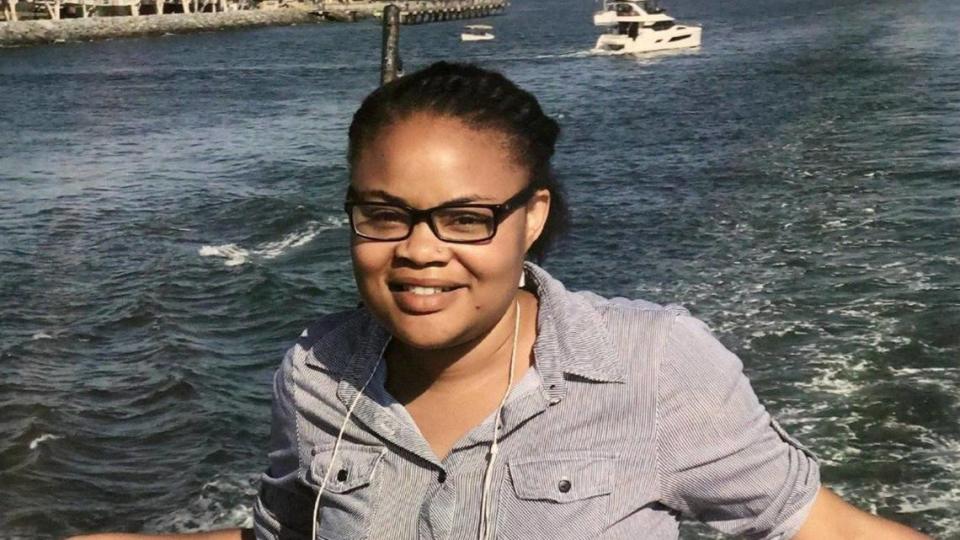Second Court of Appeals affirms Aaron Dean manslaughter conviction in Fort Worth killing
The Second Court of Appeals has affirmed the manslaughter conviction of Aaron Dean, who in 2019 when he was a police officer fatally shot a woman as she held a handgun inside the Fort Worth house where she was living, overruling four trial errors that were alleged by the defense attorneys who represent Dean.
Whether public assessments of the circumstances of Atatiana Jefferson’s killing offered by influential people in Tarrant County impacted a juror pool was the central element in dispute in the appeal.
The year that elapsed between when many of the statements, which were reported in media accounts, were made and when the defense filed a motion to change the trial’s venue muted the statements’ ability to impact the pool, the state argued.
“In sum, although the media coverage in this case was intense and the DA’s Office deviated from its standard practices in officer-involved-shooting cases, the trial court could have reasonably concluded that Dean failed to show a dangerous combination against him that was led by influential persons such that he could not expect a fair trial in Tarrant County,” Justice Elizabeth Kerr wrote in the opinion that was issued on Thursday.
Kerr, Justice Dabney Bassel and Justice Brian Walker considered the case.

The observations and assessments of influential people cast the case as a racial matter, Dean defense attorney Bob Gill argued. Jefferson was Black; Dean is white.
Eighty-two of the 191 people who reported for jury selection had never heard about Dean’s case prior to his trial. Sixty-five of the 109 people who had previously heard about the case said the publicity they viewed did not influence them to the point that they could not deliver a fair verdict, leaving 44 people who were excused after questions on pre-trial press reports.
Of those seated on the jury, five had indicated that they previously heard about the case.
Today's top stories:
→ Baby gorilla born in rare C-section at Fort Worth Zoo
→ Pentagon may cut orders for Lockheed Martin F-35 fighter jets
→ Tarrant County Jail inmate dies at Fort Worth hospital
🚨Get free alerts when news breaks.
Judge George Gallagher, who presides in the 396th District Court in Tarrant County, had the discretion to believe the prospective jurors offered truthful responses, the state argues. In response to a question from Justice Walker on the matter, Gill suggested that trial judges should evaluate such responses with skepticism.
Gallagher erred by not changing venue for the trial because there was sufficient evidence to support the existence of a dangerous combination of influential people, Gill argued.
The venue change was sought in a defense motion Gallagher denied on Dec. 5, one year before Tuesday’s oral argument.
In October 2019 Dean, through a window, shot Jefferson, 28. Dean was outside the house in the 1200 block of East Allen Avenue. Jefferson was inside the house.
A grand jury indicted Dean on murder.
The trial jury found Dean guilty of the lesser-included offense of manslaughter, a reckless killing. In December 2022, it assessed Dean’s punishment at 11 years, 10 months and 12 days in prison. Dean will be eligible for parole on Nov. 18, 2028, the date on which he will have served half of the term.
Jefferson’s neighbor described open front doors in a phone call with a police communications employee. Dean and another officer were dispatched to the house to investigate an open structure.
The officers walked into the back yard. Inside the house, Jefferson was playing video games in a bedroom in which her 8-year-old nephew was also present. Hearing a sound in the yard, Jefferson grabbed a handgun from her purse and moved toward the window.
The direction Jefferson pointed the gun at the time that Dean fired is in dispute. Her nephew, Zion Carr, testified at trial that she was holding the gun by her side. In the hours after the shooting, Zion, then 8, told a civilian forensic interviewer trained to question children who may have knowledge of crimes, that he and Jefferson were in the back bedroom. Jefferson told Zion “that she heard noises coming from outside and she took her handgun from her purse,” the child said in an interview, according to an affidavit supporting Dean’s arrest.
Zion said that, “Jefferson raised her handgun, pointed it toward the window, then Jefferson was shot and fell to the ground,” according to the affidavit.
At trial, prosecutors argued that Dean did not see the gun until he went inside the house after he shot Jefferson. Dean did not identify himself as a police officer and fired his gun within seconds of seeing a silhouette in a window, according to his body-worn camera video recording.

